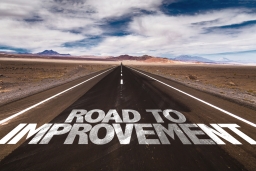Marginal Gains Reconsidered: How Sport Organizations Hold the Key to Boosting Sport Performance
Wednesday, August 29, 2018 - 09:00

The concept of marginal gains has caused many professional and amateur teams to chase every tiny gain available relating to nutrition, physiology, psychology, technology, and strength and conditioning. As a result, in the past decade sport has taken a huge step forward through innovation, much of it driven by partnerships with external experts with world-leading expertise in related areas that had never before been applied to this sector.
However, while teams funded at the highest level can afford to pursue every possible improvement, the rest of us need to be selective with our investments. One opportunity is apply the concept of marginal gains to the system, examining how organizational decisions and support affect our athletes. Using this approach, three areas for improvement can be easily identified:
1. Implement Travel Booking Guidelines
Sleep quantity and quality play a role in performance, recovery and the prevention of illness. Many National Sport Organizations (NSO) in Canada have worked with sleep specialists to ensure their athletes are sleeping optimally and have high quality plans for travelling across time zones to minimize jet lag. In addition to this, NSOs could implement travel booking guidelines, investing resources to ensure athletes can fly at times that allow them to have a full night’s rest prior to the trip and fly the most direct route. When an athlete is targeting a top performance at an event, the travel arrangements can have an impact (Reilly, 1990; Thun, Bjorvatn, Flo, Harris, & Pallesen, 2015).
2. Create a Mental Health Strategy
The Mental health of athletes and staff is another area where the benefits are potentially quite large. Staff set the tone of the training and competition environment, and when they struggle it is often felt by everyone. Athletes who are struggling aren’t able to perform at their best, and it has been reported that the prevalence of mental health disorders in athletes is similar to that in the broader population (Gulliver, Griffiths, Mackinnon, Batterham, & Stanimirovic, 2015; Foskett & Longstaff, 2018). The Canadian sport system is making advances in mental health support for athletes with services such as Game Plan/Plan de Match, as well as in-house services provided by National Teams. A comprehensive mental health strategy can establish a consistent and positive approach to mental health issues in athletes and staff, and provide mental health education to coaches, support staff, and management. This approach can reduce the barriers of stigma and misunderstanding that may hinder people from reaching out to these services for the support they need.
3. Reduce the Bureaucracy
The importance of simple and efficient processes within the organization can’t be underestimated when it comes to optimizing athletic performance. Ensuring athletes and staff have all the information they need well in advance, that athletes have enough clothing for training and competition, that expenses are easy to file and people are reimbursed quickly, that communication between team members is easy and doesn’t overwhelm people with flooded inboxes, and many other areas of how the organization functions all have an effect on race day. This aspect of marginal gains has started to be studied in a scientific context (McGuire & Halliday, 2018), with studies examining how changing processes can have an effect on people, rather than just looking at new types of interventions.
Key Message
The concept of “marginal gains” has been the catalyst for some substantial and positive innovations, as teams and organizations search for new areas of improvement that were not considered before. However, it is tempting to look for those gains only in terms of direct interventions with athletes, rather than turning that lens on the organization and systems that support the athletes. As a sport system, Canada needs to stay focused on all types of gains and resist the urge to search only for scientific interventions aimed at improving the performance of the athletes.
Adapted from a 2018 SIRCuit article.
About the Author – Andrea Wooles is an exercise physiologist with nearly 20 years of experience working with Olympic and Paralympic sport. She began her career with British Cycling, consulted for numerous sports in the UK and Canada, and established the integrated support team system at Cycling Canada as their Science & Medicine Manager. She is now focusing on clothing and equipment innovations for Cycling Canada through partnerships with the team’s innovation partners.
References
Foskett, R., & Longstaff, F. (2018). The mental health of elite athletes in the United Kingdom. Journal of Science and Medicine in Sport, 21(8), 765–770.
Gulliver, A., Griffiths, K., Mackinnon, A., Batterham, P., & Stanimirovic, R. (2015). The mental health of Australian elite athletes. Journal of Science and Medicine in Sport, 18(3), 255–261.
McGuire, W., & Halliday, H. (2018). The Research Cycle: Improving Care and Outcomes for Newborn Infants. Neonatology, 114(1), 2–6.
Reilly, T. (1990). Human circadian rhythms and exercise. Critical Reviews in Biomedical Engineering, 18(3), 165–180.
Thun, E., Bjorvatn, B., Flo, E., Harris, A., & Pallesen, S. (2015). Sleep, circadian rhythms, and athletic performance. Sleep Medicine Reviews, 2015 Oct(23), 1–9.